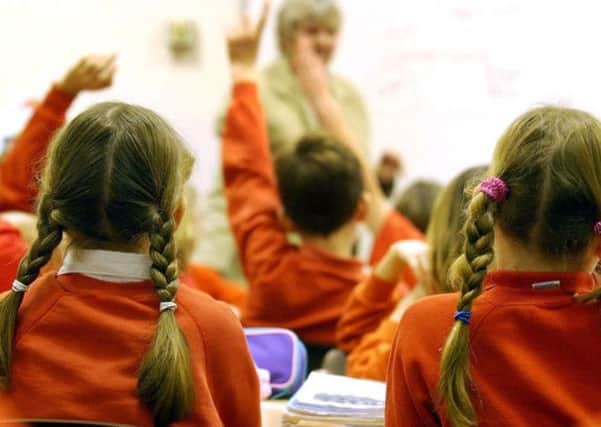Head attacks ‘yob’ TV shows for destroying aspirations in young


David Jones, headteacher of Holybrook Primary and Parkland Primary Schools in Bradford, told MPs in Parliament yesterday that a “lack of aspiration” among the parents of white, working-class children is the overriding reason why so many are failing in Britain’s schools.
Mr Jones hit out at media portrayals of ‘Yob Britain’ as a key factor behind the low expectations some working-class parents hold for themselves and their children, which he said are frequently passed on to under-achieving pupils across the country.
Advertisement
Hide AdAdvertisement
Hide Ad“A lack of aspiration isn’t necessarily matched by the children, but by the parents,” he said. “That is the biggest issue for me.”
Mr Jones was one of a number of senior headteachers appearing before the Commons education committee, as MPs hold an inquiry into the underachievement of white working class children in Britain’s schools.
The Bradford head, awarded headteacher of the year for the North of England in 2008, said his staff face a constant battle to convince youngsters they have the ability to succeed.
“Communicating high expectations to our children is what works,” he said.
Advertisement
Hide AdAdvertisement
Hide AdThe Yorkshire region, and Bradford in particular, have some of the worst-performng schools in the country according to Government league tables. But Mr Jones insisted much of the problem begins at home.
“The lack of expectation doesn’t come from schools,” he said. “Our staff do actually believe they can make a difference to those children, and it’s that which affects their aspiration. Everyone can name a teacher who first convinced them they could do it.”
Speaking of his own experience as a working-class youngster in Yorkshire, he went on: “That person made a massive difference to my life – as well as (having) parents from working class backgrounds who had high expectation for their kids.”
Vic Goddard, a headteacher in the South East, told the committee it was a “stark truth” that white working-class children under-achieve in schools across the country.
Advertisement
Hide AdAdvertisement
Hide AdHe too highlighted a lack of aspiration among some pupils and said there were wider social issues to be addressed.
“It’s not just about education – it’s about all of us,” he said. “I’m a free school meal child, and it didn’t limit my aspiration because I had a family that supported that – but it did affect my view on life.
“There is a wider societal issue... We are not going to tackle the wider longer-term issues unless we tackle the biased view of working class children which we ignore on a daily basis.
“The fact certain newspapers have got the circulation they have, means that lots of people actually buy into that. We are never going to change the self-worth of our children unless we tackle that too.”
Advertisement
Hide AdAdvertisement
Hide AdMr Jones said he agreed that part of the problem was “this view of Yob Britain, Jeremy Kyle writ large, Benefits Street – depicting the white working class in a way that if other groups were depicted, people would probably find themselves in a court of law.”
He stressed that the under-achievement of working class children is “not a new phenomenon”, but that the life outcomes for those who do poorly at school can now be far harsher than for previous generations.
“The impact of educational failing (in previous decades) was that you were condemned to a life of mass employment, in whatever regional industry there was,” he said.
“Within that you could be a fine upstanding citizen and enjoy some of the cultural benefits of being in the brass band and working textiles, and all the other positive things that working class life brought with it.
“Now, sometimes it is to be condemned to the forgotten pile, to have a life which has multiple deprivation and turbulence.”